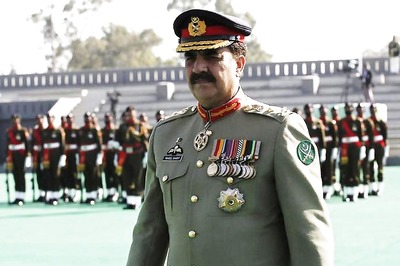
views
This was to be a showcase event — India’s show of strength and growing global clout. For the first time ever, the Republic Day parade would see 10 chief guests, strategically picked from the South East Asian region. This after a commemorative event to mark 25 years of ASEAN-India ties on Thursday evening. It was a clear move to counter competitor China's growing territorial and maritime hegemony in the region. The event was being planned for about a year, feelers were sent out to the heads of state and government early last year. The gala event with welcome a lunch, retreat, summit and dinner has now been completely overshadowed by the out-of-control Karni Sena and its violence over Sanjay Leela Bhansali’s Padmaavat.
Ten leaders, 6 spouses, teams of foreign officials and over 150 visiting media personnel, was just a reflection of the importance that was being attached to the summit not just by host India but by the ten nations as well. The theme of the Retreat Session – Maritime Cooperation and Security — resonated with all 10 in view of China’s muscle flexing in the region. China claims that virtually all of the strategically vital South China Sea, even that approaching the coasts of South-east Asian nations like Philippines, Brunei, Indonesia and Vietnam, belong to it.
So during the bilateral meeting with the Vietnamese PM Nguyen Xuan Phuc and Prime Minister Narendra Modi on Wednesday evening both sides discussed the Comprehensive Strategic Partnership, ‘including in the fields of maritime cooperation in the Indo-Pacific region.’ The press note post the three bilateral meetings with Vietnam, the Philippines and Myanmar said, ‘The visiting dignitaries underscored the importance of ASEAN-India relations for peace, security and socio-economic development in the Indo-Pacific region.’
The Philippines has also been embroiled with China in a dispute that went to the International tribunal in The Hague. The court ruled against China but it paid no heed to the tribunal order. China even refused to participate in the proceedings. In fact, China Daily, known to be a government mouthpiece, called the decision "outrageously one-sided”.
India has stepped up its engagement with ASEAN nations as it pushed its ‘Look East’ policy into the direction of ‘Act East’. There was a clear intent to engage with the ten ASEAN countries not just to promote economic cooperation and cultural ties but also to develop a “strategic relationship with countries in the Asia-Pacific region,” according to MoS External Affairs VK Singh in his reply to Parliament in 2015.
It is in the backdrop of this strategically significant summit, the violence in North India over the film Padmaavat was embarrassingly ill-timed for the government. Even though, according to sources, no delegation expressed any concern over reports of violence, the fact that newspapers and news channels have been plastered with reports of state governments failing to control a fringe group came as bad publicity for a country pitching itself on the global stage.
Security was heightened outside the summit and bilateral meeting venues. Section 144 or prohibitory orders were in place in view of Republic Day celebrations around Lutyens Delhi. Traffic movement was restricted and barricading was seen across the city. While the security to the 10 leaders staying in different hotels in the city was beefed up, providing security to theatres and multiplexes in view of the Karni Sena protests against Padmaavat, just added to the burden while the focus should ideally have been the visiting dignitaries.




















Comments
0 comment